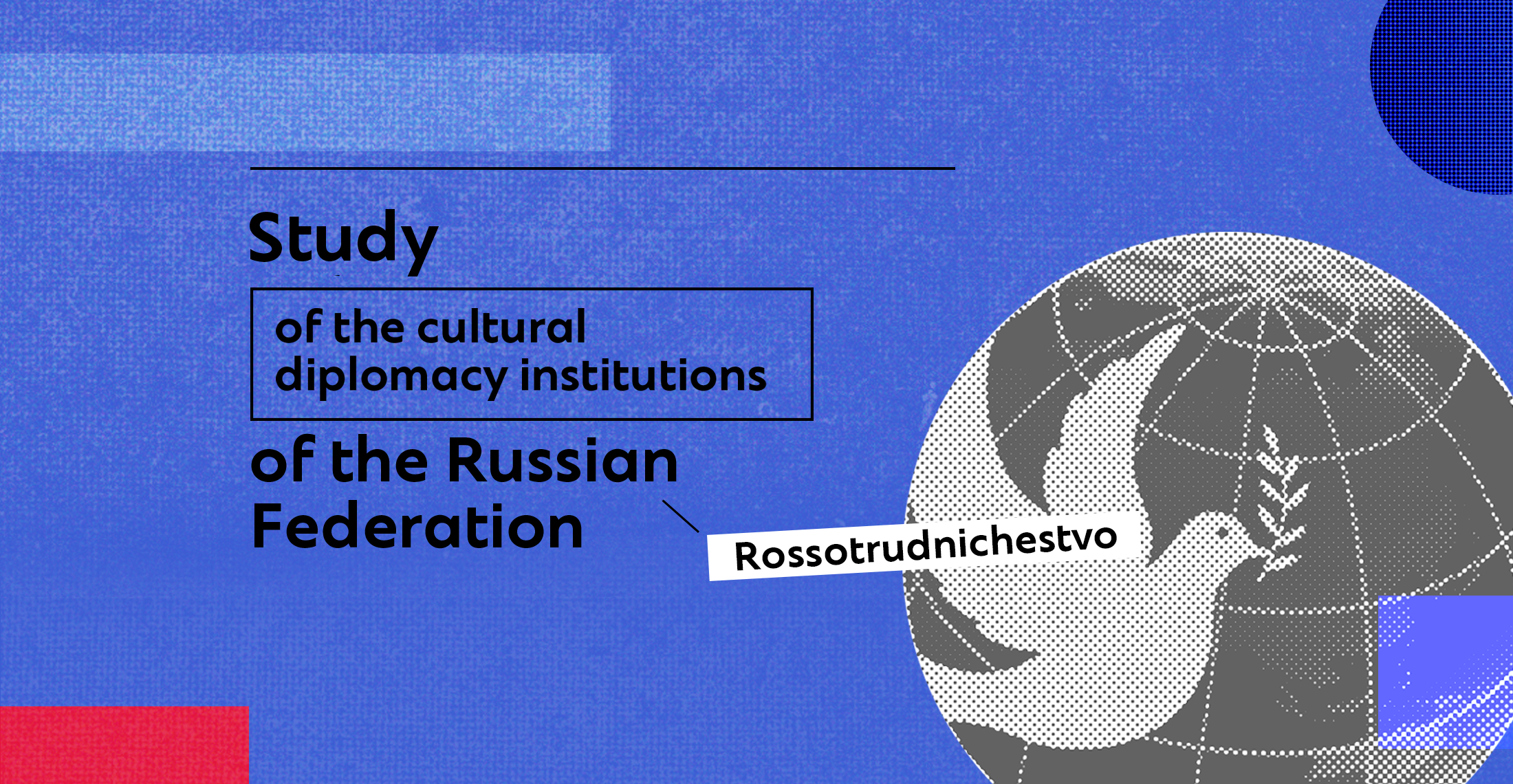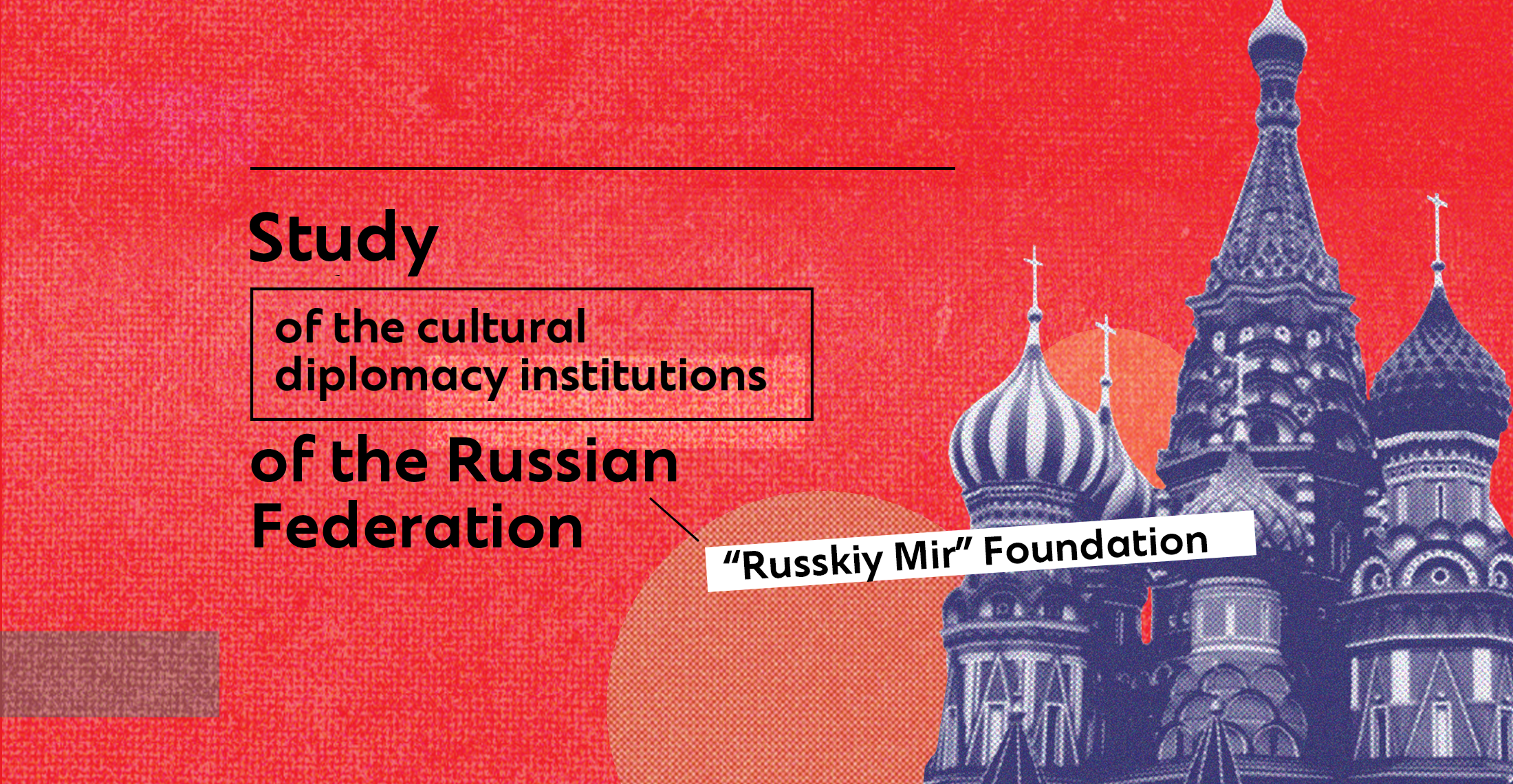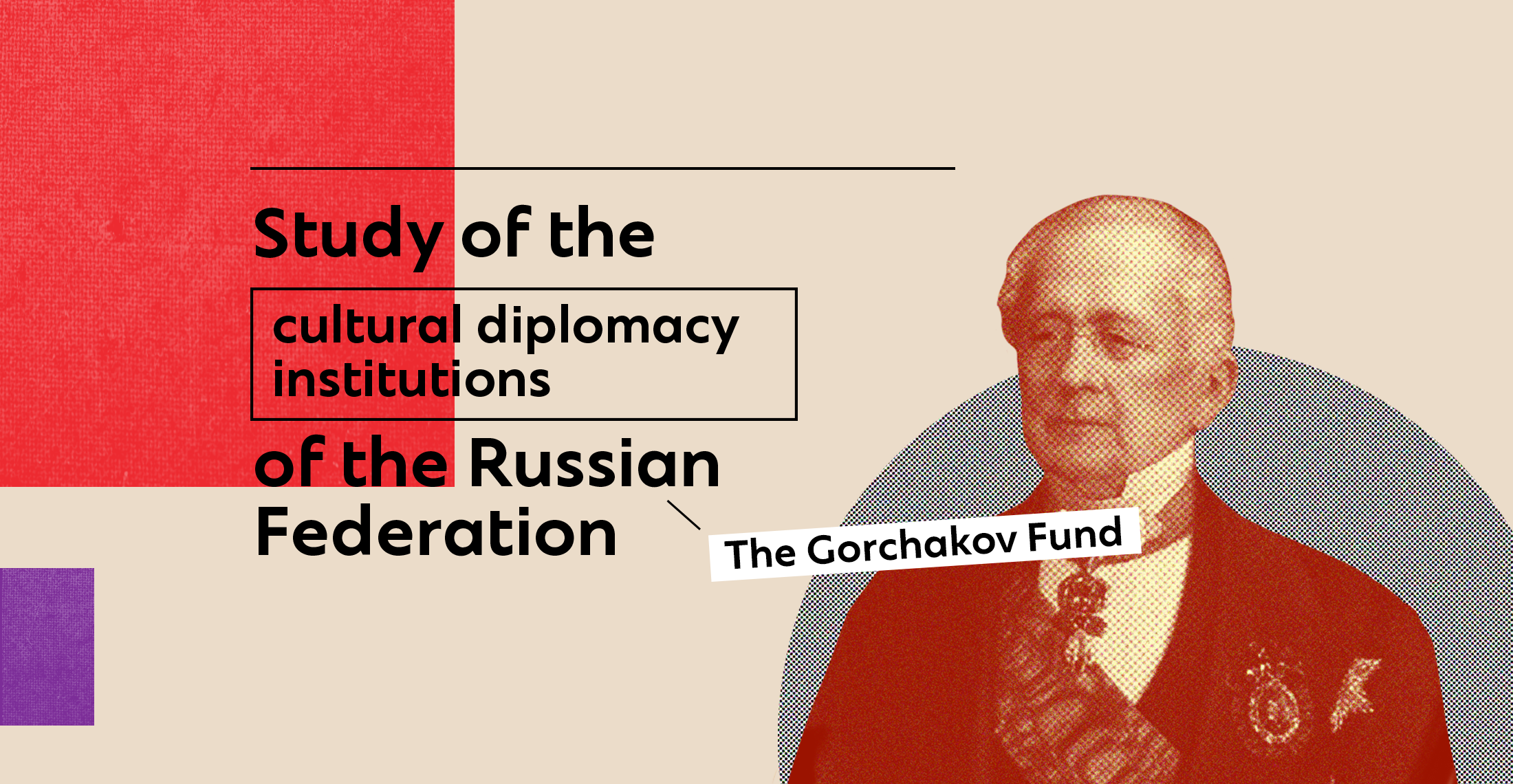The study
Rossotrudnichestvo: The Unbearable Harshness of Soft Power
Dates
March – September 2022
Researchers
Nadiia Koval, Maryna Irysova, Serhiy Tytiuk, Denys Tereshchenko
About the study
This paper is part of the research project “Study of the cultural diplomacy institutions of the Russian Federation” conducted jointly by the Ukrainian Institute and the research agency MZ Hub.
Rossotrudnichestvo is the largest, best-funded, and most historically rooted Russian cultural diplomacy institution. In this case study, we have analysed its (Soviet) roots, its position within Russian power hierarchies, and its geographical representation around the globe. We have also examined Rossotrudnichestvo’s ideological foundations as well as practical activities along its three primary fields of operation: spreading Russia’s (cultural) influence overseas, working with the so-called “compatriots,” and providing international humanitarian aid. The study also examines Rossotrudnichestvo’s intense militarist propaganda activities following the launch of the full-scale Russian invasion of Ukraine, its pseudo-humanitarian operations in the temporarily occupied territories of Ukraine, as well as its efforts to combat “Russophobia” and campaigns against “cancelling” Russia abroad.
The study’s main conclusions:
- Rossotrudnichestvo is the most recent embodiment of a variety of Soviet and Russian institutions tasked with whitewashing the USSR/RF’s image abroad through cultural diplomacy, sometimes coupled with spying operations. As both the USSR and Russia frequently engaged in aggressive foreign policies and internal repressions, there was a constant need to improve their image.
- Rossotrudnichestvo inherited from its Soviet predecessors a vast network of offices abroad, the so-called “Russian Houses”, that spans the globe from South Korea to Chile. There are currently at least 97 such offices. Already in the early 2000s, the Agency concentrated its operations primarily on the Commonwealth of Independent States (CIS) and Baltic states, which is indicative of the resurgent Russian ambitions to restore its hegemony in the region. Rossotrudnichestvo’s offices also continued to operate in Ukraine, even after 2014, till they were eventually shut down by the Ukrainian authorities in 2021.
- As a federal government agency, Rossotrudnichestvo is completely subordinate to the Russian authoritarian regime. The way this subordination is executed is evident when keeping in mind that Rossotrudnichestvo’s management board is filled with Kremlin loyalists, and the Agency itself directly reports to the Ministry for Foreign Affairs. As a federal agency, Rossotrudnichestvo is almost exclusively reliant on federal funding. The Agency’s managers and its sympathisers within the government have repeatedly requested that the Kremlin increase Rossotrudnichestvo’s funding, which, however, never happened. Most likely, the Kremlin eventually prioritised “hard power” over “soft power.”
- We have identified the Agency’s three main areas of activity. The first entails maintaining Russian presence in the world through cultural exchanges, promotion of the Russian language abroad, as well as youth exchanges and programmes. The second is work with the “compatriots,” who are broadly and rather vaguely defined as Russian-speakers and Russians outside Russia. Finally, Rossotrudnichestvo also allocates humanitarian aid, most often to the former USSR allies who share a positive attitude towards Russia as the successor to the Soviet Union.
- After the launch of the full-scale Russian invasion into Ukraine, Rossotrudnichestvo has loyally supported Russia’s war objectives and joined the efforts to establish Russian presence in the temporarily occupied Ukrainian territories, primarily through the allocation of what they call “humanitarian aid” to locals. Rossotrudnichestvo has also launched campaigns aimed at spreading Russian militarist propaganda and fighting any attempts to “cancel” Russia or Russian culture.
- Rossotrudnichestvo has frequently been accused of organisational inefficiency and corruption, despite its extensive activities and vast network of foreign offices. In addition, the results of many years of Rossotrudnichestvo’s operation remain dubious and vague since, over the past few decades, global public attitudes towards Russia have not only not improved but have become considerably more negative.



